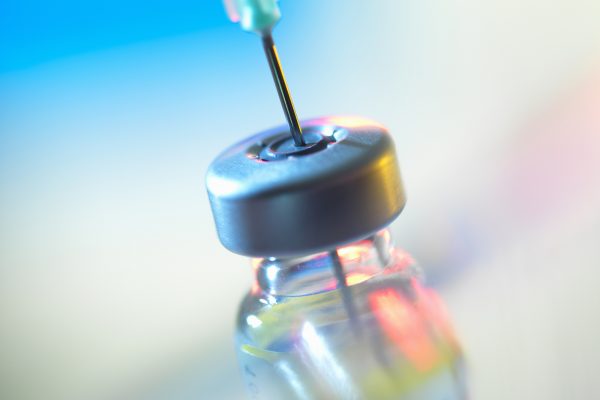
A retrospective analysis presented at the 2021 American Society of Hematology (ASH) Annual Meeting reported that the vaccines against COVID-19 have less efficacy in patients with multiple myeloma (MM).
Recent studies have indicated that patients with a compromised immune system, such as MM patients, may have an inadequate antibody response to COVID-19 vaccination. A retrospective study in the national Veterans Affairs (VA) healthcare system was carried out to evaluate the real-world efficacy of the COVID-19 vaccine in MM patients.
The multicenter matched cohort study included 1636 MM patients at the Veterans Affairs facility with an exactly matched group of either vaccinated (n=818) or unvaccinated (n=818) individuals and 9596 patients with monoclonal gammopathy of undetermined significance (MGUS) (matched 1:1 vaccinated and unvaccinated). The entire cohort (n= 11,232) mainly consisted of men (95.3%), and the median age of patients was 73 years. The majority of patients were non-Hispanic white (58.2%) along with non-Hispanic Black (34.5%) and Hispanic (3.4%) ethnic background. Additionally, 36.3% of patients were categorised as very frail and 26.2% as frail. Most patients had received MM treatment within the last 90 days.
The primary outcome was lab-confirmed COVID-19 infection, and the vaccine effectiveness was defined as one minus the risk ratio of COVID-19 infection for vaccinated vs unvaccinated patients.
No significant difference between the cumulative incidence of COVID-19 infection was seen between vaccinated and unvaccinated MM patients. The estimated vaccine effectiveness was very low in MM patients from dose 1 to end of study (9.7%), dose 2 to end of the study (12.6%), and two weeks after the second dose to the end of the study (5.6%). The vaccine was modestly more effective in MGUS patients than MM patients (Dose 1 to the end of the study-28.4%, dose 2 to end of the study-34.1%, and two weeks after the second dose to the end of the study-27.2%).
The rate of breakthrough infection was highest (9.1%) in those who had received daratumumab in the last 90 days, followed by vaccinated MM patients with treatment within the previous 90 days (5.2%), longer than 182 days of treatment post-vaccination (2.6%), and patients whose last treatment was between 90-182 days before vaccination (1.1%).
The COVID-19 vaccine appears to have low efficacy in MM patients with reduced immunity. Future studies will be needed to evaluate the how type and timing of treatment may impact the vaccine effectiveness in MM patients.
Reference
Fillmore NR, La J, Wu JTY, et al. Inadequate SARS-CoV-2 vaccine effectiveness in patients with multiple myeloma: A large nationwide Veterans Affairs study. Presented at ASH 2021; December 11-14, 2021. Abstract 400.